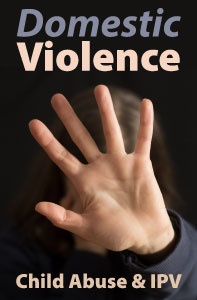SALE
$19.5
REG. $39

Related Courses

Counseling Victims of Mass Shootings

Psychological Effects of Media Exposure

Domestic Violence: Child Abuse and Intimate Partner Violence
Counseling Victims of Natural Disasters
Claire Dorotik-Nana, LMFT
CE Credit: 3 Hours
Target Audience: Psychology CE | Counseling CE | Social Work CE | Occupational Therapy CEUs | Marriage & Family Therapy CE | School Psychology CE | Teaching CE
Learning Level: Intermediate
Course Abstract
Counseling Victims of Natural Disasters is a 3-hour online continuing education (CE/CEU) course that examines how to help the victims, and witnesses, of natural disasters.
We may ask ourselves: What can be done for the victims of natural disasters? Beyond the physical needs, such as safety, food, and water, there remains the emotional residue of living through an experience that threatens one’s life. This course will address these emotional needs.
This course offers healthcare professionals an opportunity to consider the psychological impact of living through a natural disaster. The practical information presented here will aid healthcare professionals in taking clients through the first steps of recovery: disclosing, normalizing, and grounding. Clinicians will consider the ways in which natural disasters can lay the foundation for profound psychological growth. In searching for meaning in the aftermath of a traumatic experience, people can develop new perspectives on life, which leads to an adjustment in values, beliefs, and priorities. The experience becomes incorporated into their sense of self, helping them to see themselves as stronger, more capable, and more appreciative of what they have. The clinician will then examine specific skills to use with clients as they learn to cope in the aftermath of a natural disaster.
Closeout Course #31-04 | 2019 | 41 pages | 20 posttest questions
Learning Objectives
Professional Development Resources is approved by the American Psychological Association (APA) to sponsor continuing education for psychologists. Professional Development Resources maintains responsibility for this program and its content. Professional Development Resources is also approved by the Florida Board of Psychology and the Office of School Psychology and is CE Broker compliant (#50-1635 - all courses are reported within two business days of completion). Professional Development Resources, Inc. is recognized by the New York State Education Department’s State Board for Psychology as an approved provider of continuing education for licensed psychologists (#PSY-0145).
This online course provides instant access to the course materials (PDF download) and CE test. The course is text-based (reading) and the CE test is open-book (you can print the test to mark your answers on it while reading the course document).
Successful completion of this course involves passing an online test (80% required, 3 chances to take) and we ask that you also complete a brief course evaluation. Click here to learn more.
Have a question? Contact us. We’re here to help!
Claire Dorotik-Nana, LMFT, is a Licensed Marriage and Family Therapist who specializes in post-traumatic growth, optimal performance, and wellness. She is licensed to practice in California and Colorado. Claire earned her BS in Kinesiology and worked as a personal trainer for years before becoming a course developer for International Sports Science Association. Claire is always thinking about ways to improve physical fitness and nutrition as a modality for improving mental health. She also writes in her popular blog, Leveraging Adversity on Psychcentral.
Disclosure:
Financial: Claire Nana receives author compensation from Professional Development Resources.
Nonfinancial: No relevant nonfinancial relationships exist.
Customer Reviews